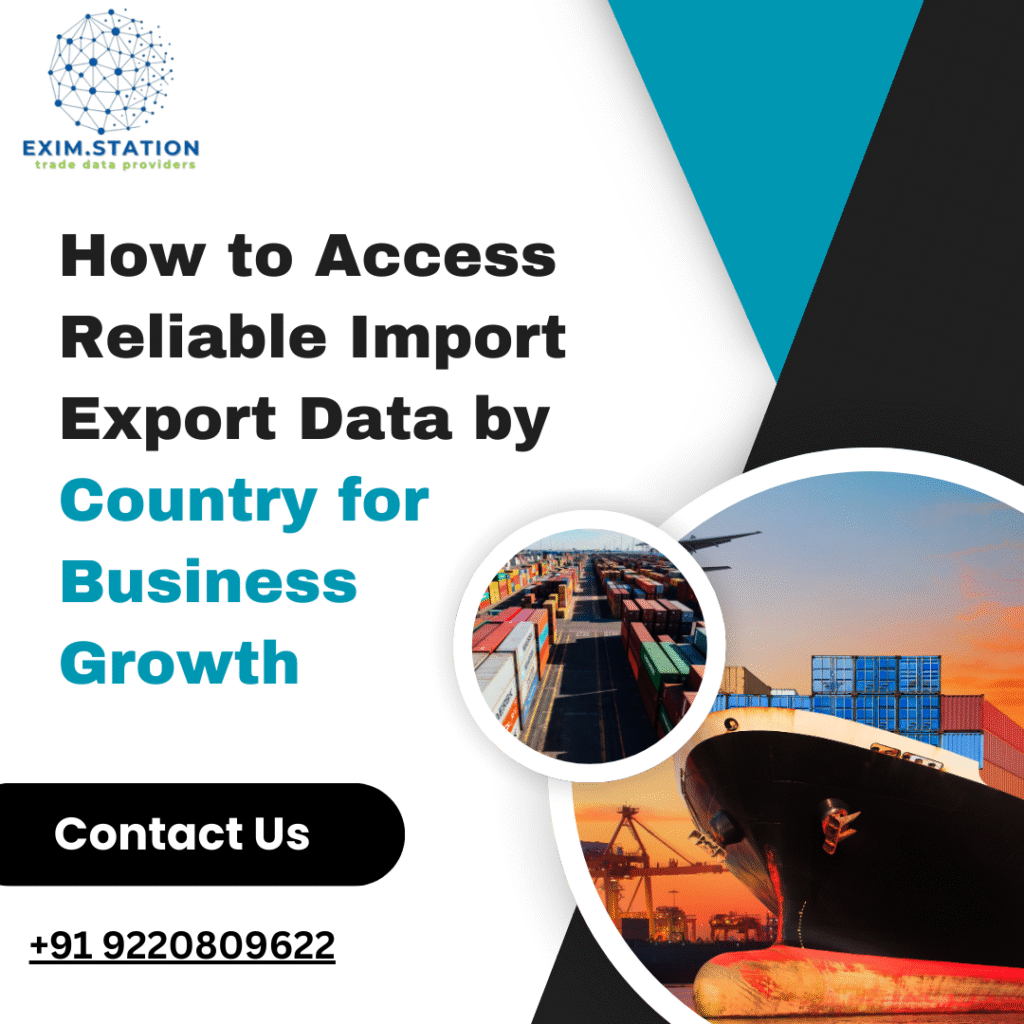In the ever-changing global business of trade, a firm’s success hangs in the balance based on its access to up-to-date and correct information. One of your strongest allies is import/export data by country. This data is not merely figures on a list; it is a portal into international markets, providing a blueprint for successful business expansion. By knowing what this information is, how it’s gathered, and how to apply it, you can achieve a huge competitive advantage.
What Is Import/Export Data?
Reliable import-export data are the in-depth records of goods and services crossing global borders. This information is carefully gathered by customs officials and other government authorities around the world. It’s an exhaustive record of all shipments, offering plenty of information, including:
Product Description and HS Code: The category of products being exchanged, as designated by an internationally accepted Harmonized System (HS) code.
Quantity and Value: The number and financial value of the products.
Trade Parties: The parties of the companies and individuals involved, including the exporter and the importer.
Ports of Origin and Destination: The exact premises from and to which the products were shipped.
Shipping Information: Details of mode of transport, carrier, and shipment dates.
The data, in effect, captures the image of international trade, showing who purchases what, from where, at what cost.
All About Import/Export Data By Country?
Reliable import/export data by country is a geographical subset of this international data, highlighting the trading activities of one nation. For example, if you’re an Indian textile manufacturer, you would want to study the import data of the United States for understanding what textiles are being demanded there. This nation-specific information helps companies do in-depth market research, including trends, opportunities, and pitfalls of a specific national market. It is the way to make informed market entry and expansion decisions.

Why Import/Export Data is Essential for Your Business Growth?
Utilizing international import/export data is a turning point for companies of any size. These are some of the most important reasons why this data is vital to your company’s success:
Market Analysis and Entry: It assists you in determining emerging markets with a high demand for your products. Through the examination of global export-import trade data, you can observe to which places your products are being imported in large quantities, showing a good market opportunity. This protects you from the guesswork and cost of going into a market blindly.
Competitive Intelligence: You may keep an eye on your competitors’ moves by observing their shipments. This lets you view their leading markets, prices, and supply chain partners. Knowing their actions helps you fine-tune your own moves to be ahead of the curve.
Buyer and Supplier Identification: Import data is a treasure trove for potential buyer identification. You can identify existing companies that are importing your equivalent products. Likewise, export data can assist you in identifying good-quality suppliers with a strong track record to ensure a safe and efficient supply chain.
Pricing Strategy: Based on the value of previous shipments, you can identify the market price for your products. This allows you to set competitive prices and negotiate improved terms with both suppliers and buyers.
Risk Management: Using import/export trade data, you can spot potential risks within your supply chain. You can observe which nations or regions have steady, predictable trade flows and which could potentially be risk-prone, enabling you to diversify your network and reduce risk.
How to Access Reliable Data: Leading Trade Data Providers
Government sources yield some trade data, but it tends to be limited, incomplete, or hard to work with. This is where specialized platforms are helpful. To obtain the most detailed and reliable import/export data by country, you must look to the best providers of trade data. These platforms, such as Exim Pedia, TradeImeX, and Cybex, collect and process massive amounts of data from customs and other official sources globally. They provide intuitive dashboards, powerful search filters, and customizable reports that enable the data to be actionable.
One such leading provider is Exim Station. This website deals in offering quality verified import and export data. They do not stop at merely giving raw data. They provide a deeper analysis of market trends, competitor analysis, and detailed reports on particular products and countries. Exim Station is trusted trade statistics by country their data from credible official sources and applies sophisticated analytics to make the information easily comprehensible, enabling businesses to make better, data-driven decisions. With a platform such as Exim Station, you can gain access to the insights required to discover new markets, locate authentic buyers and suppliers, and ultimately realize sustainable business growth.
Frequently Asked Questions
1. Is all import/export data publicly available?
No. Although some high-level statistical data is published by governments, the transactional detail with company names and individual shipment details is generally not available. Reliable data providers aggregate this granular information from diverse sources, such as customs declarations and bills of lading.
2. How frequently is the data updated?
The top import/export websites refresh their databases regularly, sometimes monthly or even in real time. This is important if you’re in business because you’re using the latest market data.
3. Can I use this data to acquire new customers?
Absolutely. With the use of import/export data by country, you can find companies that import similar products to yours. This enables you to make a targeted list of potential buyers and directly contact them with a personalized pitch.
4. How do I know the data is accurate?
The accuracy of the data relies on the source. Use credible global import/export data suppliers who obtain their data directly from official customs and shipping manifest databases. Such sites tend to use strict data validation procedures to confirm data accuracy.
